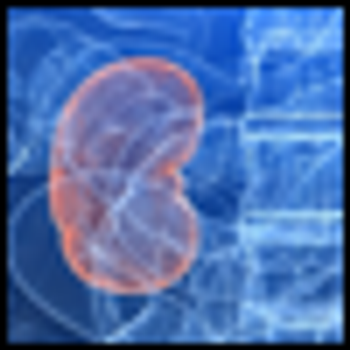
The proposed new diagnostic categories and guidelines for Alzheimer's disease include not only dementia, but also the preclinical and mild cognitive impairment (MCI) phases of AD.

The proposed new diagnostic categories and guidelines for Alzheimer's disease include not only dementia, but also the preclinical and mild cognitive impairment (MCI) phases of AD.

The role of subtyping and bipolarity in TRD was discussed in Part 1 of this 2-part article. Here we review a number of the most common confounding factors of TRD but limit our scope to comorbidities that can be directly addressed and treated by psychiatrists.

Two recent publications provide clinically relevant information about the risk to benefit ratio of antidepressants for the treatment of MDD in youths, adults, and the elderly.

Of the 3 informative articles included in this special geriatric collection, 1 offers a perspective on the treatment of depression that does not focus on somatotherapy. The others remind us of 2 additional geriatric Ds of importance: drugs and driving.

This article provides a practical overview of the available evidence-based treatment and discusses circumstances in which certain interventions may be preferred over others.

As we are faced with a growing population of older adults, a better understanding of the issues that they confront is crucial.

Medical professionals may be reluctant to initiate a discussion about driving with older patients in anticipation of a negative impact on the physician-patient relationship.

New diagnostic guidelines and advanced screening tools enable clinicians to detect dementia and Alzheimer disease earlier than ever.

Age is a major risk factor for the development of Alzheimer disease and other dementias. New technologies in brain imaging represent major advances in our ability to diagnose age-related cognitive and behavioral disorders.

The trouble with answering this question is that I couldn’t – and still can’t – recall the “best” memory. What much more readily came to mind are some of the worst memories.

In a recent interview on 60 Minutes, Harvard psychologist Irving Kirsch, PhD, commented, “the difference between the effect of a placebo and the effect of an antidepressant is minimal for most people.”

This elderly man no longer has decision-making capacity. What legal resource does he have?

Educated and successful individuals, Mr H's children seem able to understand that their father can no longer make his own decisions, but they continue to defer to him for medical and disposition decisions stating, “whatever he wants to do.”

Psychiatrists cannot, with impunity, disregard an important domain of man’s personality makeup. He ought to remain a searcher of the soul at large.

Although the adverse-effect profile of older, conventional (typical) antipsychotics has discouraged many clinicians from using them, they remain widely used in elderly patients with dementia.

While there are currently no treatments for AD, it is important to examine what we are treating. By the time AD is diagnosed by clinical symptoms, 8 to possibly 15 years of pathological damage has already occurred.

Research is needed to define clinical biomarkers and genetic screens that could be used to identify early stages of dementia and to link clinical syndromes with the later development of dementia.

The designer of the DSM-5 Field Trials has just written a telling commentary in the American Journal of Psychiatry. She makes what I consider to be 2 basic errors that reveal the fundamental worthlessness of these Field Trials and their inability to provide any information that will be useful for DSM-5 decision making.

In this podcast, Dr Helen Lavretsky discusses the topic of appropriate diagnosis of mild cognitive impairment. It will be increasingly important to strengthen the definitions of what is “normal” to avoid the “pathologizing” of aging or of any individuals who experience temporary or continuous cognitive impairment.

It is my honor-and my distinct pleasure-to welcome 4 new members to the Editorial Board of Psychiatric Times.

In his book, How We Age: A Doctor’s Journey Into the Heart of Growing Old, Dr Marc Agronin helps reduce the stigma of ageism and provides clinical guidance for seasoned geriatric psychiatrists, primary care clinicians, and medical students alike.

In theory, psychiatrists possess no special skills for determining capacity of a patient to accept or refuse medical care, yet a large percentage of a psychosomatic physician’s work nonetheless involves capacity evaluations.

Currently, there are 350,000 Americans who receive maintenance dialysis for renal failure, and this predominantly elderly population with multiple comorbidities is growing.

“I’m so cold, so weary in my abandonment. Go and find my Mother, O Wind. Take me to the house I never knew.”

Psychotic episodes are devastating for the individuals who have them, their friends, and families. Wouldn’t it be wonderful if individuals could receive treatment before the first psychotic episode strikes, so that it could be avoided altogether?